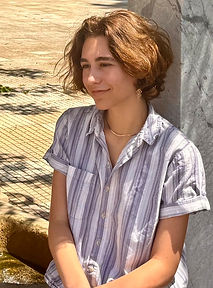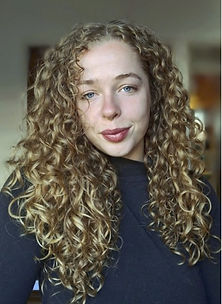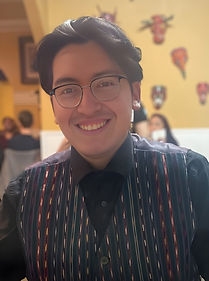
MAL-UTK is a suite of laboratories dedicated to DNA analyses of humans, with a specialty in degraded DNA
(a/k/a contemporary DNA of "forensic" age, ancient DNA, archaeogenetics, and paleogenomics).
DNA analyses are brought to bear on theory and questions emanating from the disciplines of
Science & Technology Studies (STS), Anthropology, and the anthropological subdisciplines of Biosocial/Biocultural Anthropology, and Bioarchaeology.
Scroll down for information about Lab Members, Lab Facilities, and UT Supporting Facilities.
LAB MEMBERS

Graciela S. Cabana, PhD
(hear my name) she/her
PRINCIPAL INVESTIGATOR
Dr. Graciela Cabana is the Principal Investigator of MAL-UTK.
Aditi, M.A.
LAB MANAGER
Originally from India, Aditi completed her bachelor’s degree in biotechnology in 2013 from Bangalore University. She further pursued a master’s degree in forensic Genetics at LNJN National Institute of Criminology and Forensic Science in 2016, where her research focused on Touch DNA from various substrates and its application in forensic investigations.
Following her Master’s, she worked with Truth Lab, assisting in handling forensic DNA cases. She then transitioned to an academic career, beginning as a lecturer in Forensic Science at Jain University, India. She subsequently held the position of Assistant Professor at Mody University, India, where she taught undergraduate courses in forensic genetics, serology, anthropology, and biology.
Aditi is currently developing her doctoral research program.


Lateefa is a doctoral candidate whose research interests are in ancient DNA methods and applications, the ethics and implications of ancient DNA studies, bioarchaeology, and the effects of Spanish colonialism in the northern coast of Peru.
Kamar Afra, M.A.
Kamar’s research focuses on human identification through an interdisciplinary approach between forensic anthropology, genetics, and art. Her past research focuses on the employment of genetic markers in facial reconstruction techniques.
Her dissertation work explores the process of disappearance through a biocultural lens. She will examine the various current forensic techniques involved in human identification within the criminal justice system through a community-engaged project that highlights local resources.
Kamar is also interested in Islamic mortuary practices and their effects on postmortem decomposition, quantitative and statistical methods through machine learning, and transitional justice in human rights issues.


Brianna Gardner, MSc
Brianna is a doctoral candidate in biological anthropology, advised by Dr. Graciela Cabana.
She is interested in combining genetic and skeletal analysis to assess the role of genetic susceptibility in disease manifestation within afflicted archaeological populations.
Brianna earned her MSc at the University of Durham, U.K., where she evaluated orbital roof lesions associated with metabolic disease manifestation in urban medieval populations.
Antigone Kellenberger
Antigone Kellenberger is an undergraduate student at UTK, pursuing a double major in anthropology and molecular biology. She is interested in understanding the development of disease within evolutionary and life history frameworks, with an emphasis on biocultural anthropology, bioarchaeology, evolutionary cell biology, and genetics. Antigone’s goal is to inform the relationship between shifting societal structures, biology, human evolutionary history, and health.
Antigone has conducted fieldwork in Athens, Greece, investigating skeletal pathologies as a manifestation of stress, adversity, and inequality in modern Asia Minor Greeks. She also has experience in the inventory and biological profiling of Archaic and Classical period individuals.


Lauren Koutlias, M.A.
Lauren is a Ph.D. candidate at UTK advised by Dr. Graciela Cabana. Broadly, her research interests lie in bioarchaeology and forensic anthropology, and her past research centers around the impact of social, political, and economic inequality on life course trajectories in ancient, modern, and forensic populations. Specifically, she focuses on skeletal indicators of childhood stress in adults and considers all aspects of the biocultural context.
Lauren earned her M.A. from Texas State University in 2019. She has conducted field and lab work in Belize, Peru, Romania, and South Texas.
For her dissertation, she is focusing on skeletal stress indicators among trauma victims in Greece.
Fiona Martínez earned her undergraduate degree in Sociocultural Anthropology from the University of Buenos Aires, Argentina. Her research centers on genetic testing and its role in shaping identity, kinship, and belonging in Argentina. For her undergraduate degree, Fiona undertook fieldwork to examine how individuals engage with direct-to-consumer (DTC) DNA testing, focusing on how genetic information is interpreted, communicated, and woven into personal and collective narratives. She is particularly interested in how these technologies intersect with broader histories of race, memory, and kinship, and how users draw on them to make sense of ancestry and family ties.
Fiona is pursuing her MA degree in Cultural Anthropology at the University of Tennessee, Knoxville, where she will continue to explore the intersections of identity and genetics. Fiona is being co-advised by Dr. Graciela Cabana & Dr. Tatiana Sánchez Parra.


Jacob earned his undergraduate degree from DePauw University (Indiana), majoring in anthropology and biology. His research at DePauw University and the American Museum of Natural History has shaped his interests in using cross-disciplinary methods to address questions in biological anthropology. Jacob’s main research interests are in understanding ancient migration patterns of Indigenous peoples of the Americas and the novel role that genetic testing may play in the racialization of Latin America.
He has a particular interest in Mesoamerica, the Andean Highlands, and Colombia. Additionally, Jacob’s Guatemalan heritage has motivated him to produce research that will benefit living communities and ensure that communities are fairly treated in research.
FORMER LAB MEMBERS
Bridget Algee-Hewitt, Ph.D.
Alex Kevorkian (née Emmons), PhD
Brannon I. Hulsey, Ph.D.
Erin Knapp, M.A.
Rebecca Kraus, M.A.
Frankie L. West, PhD
* Click on individual pictures for larger-size photos.
CLEAN ROOM LABS
The Clean Room Labs are located in Strong Hall 515. The labs consist of a large entry area with work space, plus two independent suites each dedicated to projects involving degraded DNA. Each suite consists of four areas: (1) gowning (i.e., putting on PPE), (2) sample preparation, (3) DNA extraction, and (4) amplification or library preparation. The suites house all relevant equipment for these uses.
LAB FACILITIES
The Molecular Anthropology Laboratories consist of two lab spaces: the "Main Lab" for DNA studies of modern (living) peoples,
and the "Clean Room Labs" which consist of two independent lab suites for ancient/paleogenomic DNA studies of past peoples.
Both sets of labs are USDA certified to receive foreign soils.
MAIN LAB
The Main Lab is located in Strong Hall 518. Along with work and bench spaces, this lab houses equipment that allows for DNA extraction,
PCR amplification, DNA visualization, and library and sequencing preparation.











* Click on individual pictures for larger-size photos.
UT SUPPORTING FACILITIES
The UT Genomics Core offers high-throughput next-generation sequencing services to all interested
on-campus and off-campus researchers. Sequencing is performed using the Illumina Novaseq and Illumina MiSeq instruments
located in room 407 of the Science and Engineering Research Facility (SERF). The facility is managed by Veronica Brown.
Bioanalytical Resource Facility
The Bioanalytical Resource Facility (BRF) offers large collection of instrumentation for biophysical and biochemical characterization
of proteins and nucleic acids.
The facility is located in Mossman 342/348 and is managed by Ed Wright.